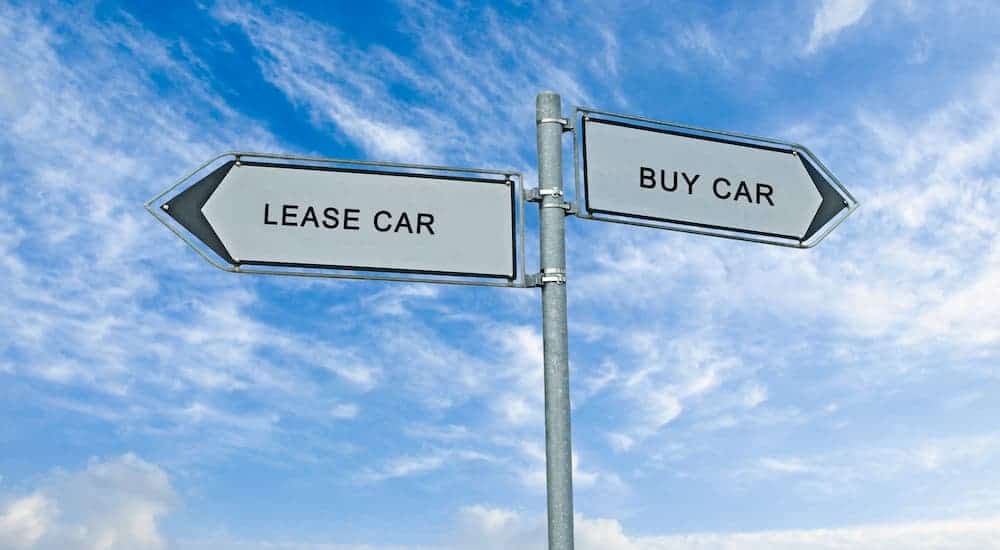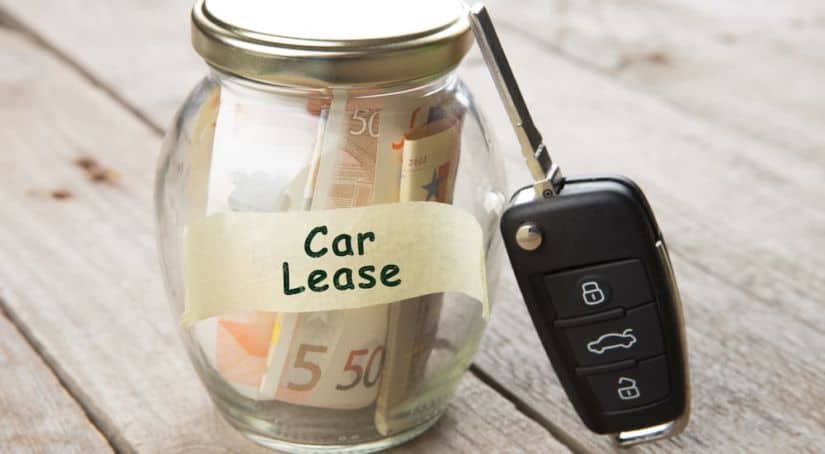The idea of leasing a car might appeal to many consumers, but many will not go with their gut instinct and opt to buy instead because they don’t understand all the perks that come from leasing. However, there are a ton of benefits to leasing that far outweigh the few hang-ups people have towards leasing. Some people don’t like the idea of not owning their vehicle, and that’s great, but many others think that leasing costs more than buying. The truth of the matter is that all dealerships offer leasing options, and you can get great Buick, GM, and Chevy lease deals that suit your needs. Let’s take a closer look at the myths that haunt car leasing and the reasons why leasing might make sense for you.
Myth: Leasing Is More Costly
Leasing is often thought of as a poor option because people tend to compare it to long-term ownership. To be fair, buying a vehicle is a better option financially if you plan on keeping the vehicle for many years. However, keeping a vehicle for an extended period of time comes with its own financial burdens, such as maintenance costs and repair costs that would otherwise be covered under warranty when leasing.
Truth: Cost Depends On a Variety of Factors
The truth is that if you plan on buying a car and keeping it until after the loan is paid off, then buying is probably the better deal. It is also a better idea to buy if you are paying cash. But if you are the type of person who likes to upgrade their ride every four, five, or six years, then leasing could save you a lot of money.
Without throwing a bunch of numbers at you, you can buy a Chevy Trax and wind up sinking a few grand for the down payment, and then make payments of several hundred dollars a month, only to trade it in after three years. But should you lease the Trax, you can expect a smaller down payment and lower monthly payments, so at the end of three years, the savings are substantial. However, if you plan to keep the vehicle for as long as possible, buying will eventually become the cheaper option.
There are several other cost factors that go into leasing and buying that also affect the potential cost. So, if you are merely looking for the cheaper option, there is no right answer. It all depends on your personal buying habits and how long you intend to use your vehicle.

Myth: There’s No Point In Leasing When You Can Own
There is also a stigma attached to leasing; you are basically driving a vehicle that you don’t own, so what’s the point. You can’t customize it, and you eventually have to return it in near perfect condition. It’s a lot of work and stress for little reward. This is a way of thinking that causes people to avoid even the thought of leasing. So it is important that you have an open mind when considering buying or leasing options when in the market for a new vehicle.
Myth: Leasing Is Too Restrictive
Many people will be quick to tell you that leasing is far too restrictive. You can only lease new shiny new models that you must keep in pristine condition. Leasing locks you into a contract full of hidden fees, and you end up paying more in the end. Leases also try to bait you with a low allotment of available miles and overcharge you when you exceed the set limits.
Truth: Leasing Offers You More Variety Than You Think
You might be the type of person who gets bored with a new car rather quickly. We get it, with new technology, cars are much like computers and smartphones in the fact that they are quickly outdated. What was once a new and novel technical feature in a vehicle three years ago can now be old and outdated. When you lease a vehicle, you can swap it out for a new model in a mere three or four years.
When you lease a new vehicle, it will also cost less to enjoy the options you desire. When you buy a car, you might skip out on a safety package or the more powerful engine because of the cost. But when you lease, you can get a loaded vehicle at a small added monthly cost. There are suddenly tons of options you can afford when you choose to lease a vehicle over buying it.
Now let’s about one of the biggest hang-ups people have about leasing: the mileage limits. When you sign a lease, you will also be agreeing to a set amount of mileage that you can drive; usually somewhere around 12,000 or 15,000 miles. This mileage limit is used to help determine the potential vehicle depreciation and then used to calculate how much your lease will cost. In addition, you can negotiate a higher mileage limit for a higher monthly payment and still save money. If you do need to go over the mileage limit, you will simply have to pay a small fee per mile over or try to extend the mileage limit at an additional cost because you will be using more of the car’s value.
Leasing is not full of hidden fees or fee traps. When you sign a lease contract, all terms about the vehicle condition (including what counts as normal wear and tear), mileage, and what fees you will receive if you return the car in damaged condition or with too many miles. Essentially, you know upfront how much you will have to pay if any fees apply or if the car depreciates more than the original estimate. Also, this contract can work in your favor since if the car is valued more than the original estimate, you could potentially get some money back at the end of the lease since you will have overpaid. There is a lot of flexibility to leasing a vehicle that you might not expect.

Is Leasing Right for You?
Leasing isn’t the right choice for everybody, but certain factors would work in your favor. For example, leasing offers a shorter commitment. If you are worried about a possible recession or job security, committing to a long-term car loan isn’t all that appealing. There are many cases in which a short-term lease just makes better sense. There are also flexible leasing options that allow you to transfer the lease should the need arise.
Auto manufacturers offer incentives that make car leasing more affordable and desirable. Have a conversation with your local dealership to discover the types of incentives available to see if there is something that catches your interest or otherwise will work better for you.
Lastly, when you lease, you get to enjoy and experience the car’s best years. It’s always exciting to experience the joy of driving a new car, whether you are buying or leasing. However, with leasing, you get to experience this joy every few years rather than when the car you own finally breaks down. If any of these points sound appealing to you, you should consider leasing.
Ignore the Myths and Experience the Joys of Leasing
As you can see, there are several reasons why leasing your next vehicle makes perfect sense. It is in your best interest to do a little homework to discover if leasing is a good option for you. All you have to do is get past the myths and untruths about leasing and have a talk with the staff at your local dealership to find good leasing deals. You may be surprised with how much better leasing a car can be for your life.



